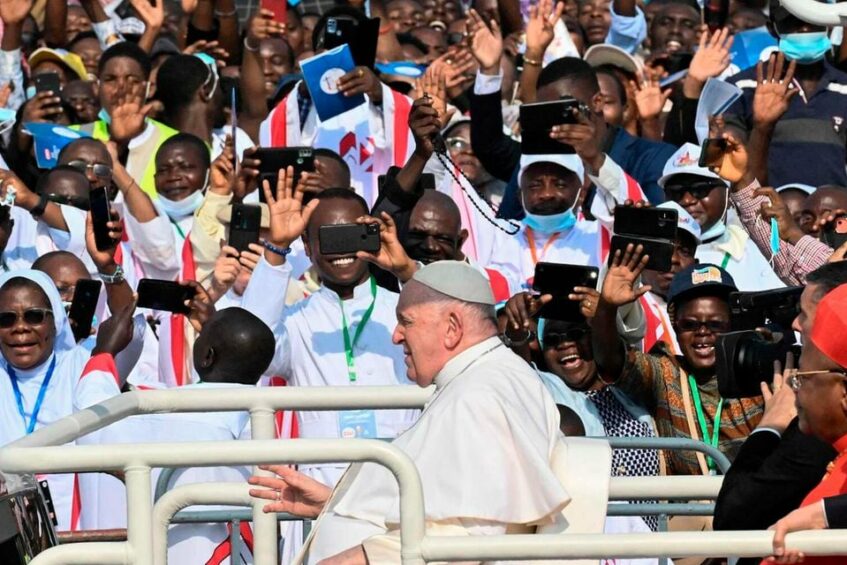Why Africa visit by Pope is significant

Pope Francis’ visit to the Democratic Republic of Congo and South Sudan has been hailed as a turning point, not only for his nine-year-old papacy, but also for the Catholic Church in Africa.
The tour remains his most challenging visit abroad and potentially the most difficult one for Africa since his last visit to Uganda, the Central Africa Republic and Kenya in 2015. He is in Africa at a time when the church has been canvassing about the agenda that it should pursue in the 21st century and ahead of the Synod later this year, making the visit critical. For the Pope, the synodal journey is aimed at establishing a church that pitches its tent among the suffering and marginalised. It is in this light that his visit to Africa is a milestone. The DRC and Sudan represent the periphery of Africa, where war and inequality have been the norm for decades.
Going by his address in DRC, Pope Francis’ tour has been that of hope and direct attack on perpetrators of violence, inequality and exploitation.
Addressing what is now dubbed to be his biggest crowd ever, after that in the Philippines in 2015, the Pope did not mince his words as he urged the international community to respect DRC’s autonomy while not turning a blind eye to exploitation and violence. What a momentous challenge to the protagonists in the DRC war! And coming at a time when the African Union peace facilitator, Kenya’s retired President Uhuru Kenyatta, a Catholic himself, has expressed concern over failure by some parties to honour ceasefire agreements made in the recent past. As he lands in Juba this afternoon, Pope Francis is expected to carry the same message of hope. It is also significant that he will be joined by the Archbishop of Canterbury, Justin Welby, and the Moderator of the Church of Scotland, the Rt Rev Dr Iain Greenshields, signaling the role of Africa in the global ecumenical movement. The visit to South Sudan should provide a platform for rapprochement between political leaders —who confess Christianity — but have remained as sworn enemies since the foundation of South Sudan in 2009.
Internally, Pope Francis’ visit should offer new opportunity to address the challenges facing the Catholic Church in Africa. It should sow seeds of harmony and tranquility in the two countries and within the Church as an institution. More importantly, it should make the beginning of a journey towards peace in Africa and the subsequent prosperity for its people.












